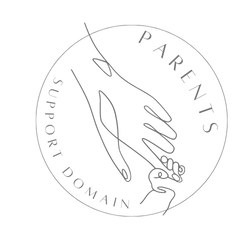What If I Drank Heavily In My First Trimester?
What If I Drank Heavily In My First Trimester? What To Do.
What If I Drank Heavily In My First Trimester? Everything you do during pregnancy has the potential to affect your unborn child. Avoiding alcohol is a crucial step you can take. But what if you drank significantly in your first trimester of pregnancy and didn’t realize you were pregnant?
This article will discuss the dangers of alcohol consumption during pregnancy, as well as the steps to take if you find yourself battling with alcoholism while carrying a child.
As a teratogen, alcohol has the potential to cause a variety of issues in the developing fetus. Women who are pregnant or attempting to conceive are strongly discouraged from consuming any amount of alcohol, as stated by the American College of Obstetricians and Gynecologists (ACOG).
How does drinking affect pregnancy?
Alcohol consumed by a pregnant woman enters her unborn child’s circulation almost immediately after crossing the placenta.
The alcohol is absorbed into the bloodstream and travels to the fetus’s growing organs, including the brain and liver, where it can do serious harm.
Compared to an adult, the fetus is more susceptible to the damaging effects of alcohol because its liver is not completely matured and cannot metabolize alcohol as efficiently.

Effects on the Brain
Fetal alcohol syndrome is caused by alcohol intake during pregnancy and affects the developing brain. Throughout pregnancy, the brain undergoes tremendous growth, and alcohol consumption at this time can severely disrupt this process, resulting in long-term brain damage.
Pregnant women who drink alcohol run the risk of having children who have cognitive and behavioral disorders.
Issues with the Heart
Fetal cardiac abnormalities are yet another potential outcome of maternal alcohol use. The heart is one of the first organs to form during fetal development, and prenatal alcohol consumption has been linked to structural abnormalities that can compromise the heart’s ability to pump blood.
Facial Abnormalities
Misuse of alcohol when pregnant leads to fetal alcohol syndrome (FAS). Facial deformities, such as a thin upper lip, tiny eye apertures, and a short nose, are characteristic of Fragile X syndrome.
Delays in Physical and Mental Development
Fetal alcohol syndrome is characterized by a slow growth rate and developmental impairments, both of which can be caused by maternal alcohol consumption.
Pregnant women who drink alcohol run the risk of having babies who are smaller than average and who are slower to complete important developmental milestones like crawling, walking, and talking.
Mental Retardation
Fetuses exposed to alcohol during pregnancy are at risk for developmental delays and intellectual impairment. Babies born to mothers who drank while pregnant have been shown to have cognitive and behavioral issues.
Risk of fetal alcohol syndrome
Fetal alcohol spectrum disorder (FASD) is a series of problems that can arise in children who were exposed to alcohol while in the womb, of which FAS is a subset. Frequent or heavy alcohol use during pregnancy is associated with an elevated risk of FAS.
Facial deformities, growth and development delays, intellectual difficulties, and behavioral issues are just some of the issues that can arise from FAS.

However, there is currently no treatment for FAS, therefore, these problems may persist throughout one’s entire life. Children with FAS could benefit from specialized medical treatment, psychological counseling, and financial aid.
Some children with FAS may exhibit no symptoms at all, and the severity of the disease can vary greatly from case to case.
Nonetheless, the hazards linked with alcohol intake are substantial, and pregnant women should abstain completely for the sake of the health of their unborn child.
You may assist in safeguarding the health of you and your unborn child by getting the support you need to overcome your alcoholism and quit while you’re pregnant.
How does alcohol affect first-trimester fetal development?
Fetal growth can be severely hampered by alcohol intake in the first trimester of pregnancy. Exposure to alcohol at this time might raise the risk of various issues, as this is the essential time for fetal growth and development.
Miscarriage, stillbirth, premature delivery, low birth weight, and SIDS are all risks associated with heavy alcohol use in the first three months of pregnancy (SIDS).
The fetal brain, heart, and liver are all still maturing, making them more vulnerable to alcohol’s damaging effects while they are still forming.
Moreover, alcohol consumption during pregnancy has been linked to developmental delays and lasting harm to the brain and heart.
Women should completely abstain from alcohol use throughout the first trimester of pregnancy for the sake of their developing kids. See a doctor or join a support group if you’re pregnant and want to break your alcohol habit.
The possibility of a stillbirth or miscarriage increases
Intense alcohol use throughout the first trimester of pregnancy has been linked to an increased risk of both miscarriage and stillbirth.

One of the major avoidable causes of birth malformations and developmental disorders, according to the Centers for Disease Control and Prevention (CDC), is alcohol consumption during pregnancy.
It is possible to obtain treatment if you are pregnant and battling alcoholism. See your primary care physician or an addiction specialist as a first step. If you want to stop drinking, they can help you find the tools and information you need.
What do studies suggest?
Every choice an expecting woman makes during pregnancy has the potential to affect her child’s physical and mental development. Drinking alcohol early in pregnancy and the risk of birth defects is one of the many pregnancy-related debates.
There is still a lot of misunderstanding and disinformation despite all the research that has been done. The purpose of this section is to offer a comprehensive overview of the most recent studies examining the correlation between alcohol use and adverse birth outcomes in early pregnancy.
Previous Research
Fetal Alcohol Syndrome was once thought to result from simply a single drink during pregnancy (FAS). Having a baby with FAS increases the risk of the infant being born with both physical and mental abnormalities.
However, new research suggests that drinking during early pregnancy may not be directly linked to delivery difficulties.
Low to moderate drinking during early pregnancy (up to eight drinks per week) was not shown to enhance the incidence of delivery problems in one research, including over 100,000 pregnancies conducted in Denmark using data from the Parents Domain Danish National Birth Cohort.
Latest Research
There have been other subsequent research on this subject since the Danish National Birth Cohort.
When researchers at Bristol University looked at information from more than 6,000 pregnant women, they discovered no correlation between light to moderate drinking and adverse birth outcomes, including low birth weight, premature delivery, or stillbirth.
One or two beers per week during pregnancy was not linked to negative outcomes in research conducted by the American College of Obstetricians and Gynecologists (ACOG).
Light drinking (one to two drinks per week) during pregnancy was also not found to have any significant impact on the cognitive or behavioral development of the baby in a study conducted by researchers at the University of Bristol, which analyzed data from more than 14,000 women who reported drinking during pregnancy.
Consult your doctor about alcohol consumption
If you have ever used alcohol during your pregnancy, even if it was a long time ago or you didn’t realize you were pregnant at the time, you should tell your doctor.
Your doctor will be able to keep an eye out for any problems and provide you with advice on how to maintain a healthy pregnancy.
Interesting reviews for wheelchair users: Buying Guide For The Best Power Wheelchair For Outdoor Use
Conclusion
Both the woman and the growing baby are at risk when alcohol is consumed in large quantities during pregnancy, but this is especially true during the first trimester. As you know if you are drinking, you may also have sleep issues and need help with bruxism, as it will affect your babies growth and health also.
It’s crucial to get assistance as soon as possible if you’re pregnant and have a problem with alcohol abuse.
If you need help overcoming your addiction, go to your doctor or a healthcare expert who specializes in this area.




